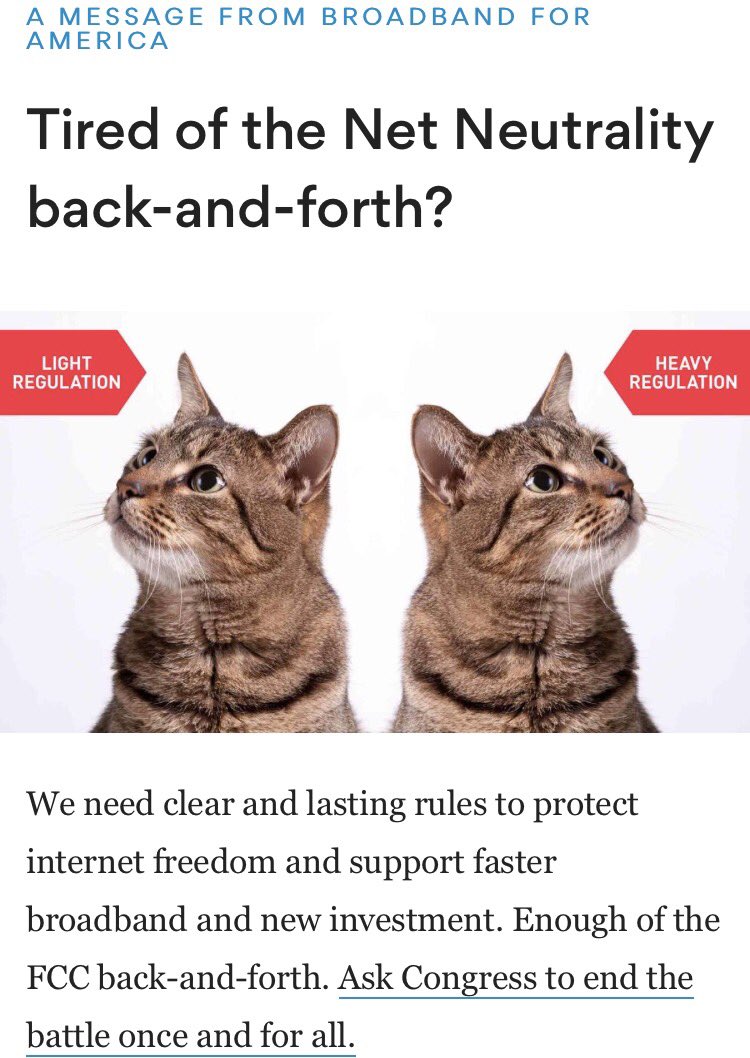
Visitors to Facebook, Google, Netflix and dozens of other websites will likely be greeted Wednesday by a special message about the future of the Internet, as part of a broad campaign by the companies to stop what they say is a threat to the Web as most consumers know it.
It’s up to each site to decide how far to go – and virtually all of them are mum about what they intend to do – but the participating businesses are expected either to write messages to visitors, or change the look of their homepages or user interfaces, in ways that make it impossible to browse those sites without learning about the issue of net neutrality. Some may post graphics like these that seek to simulate the experience of a “slower” Internet.
“Net neutrality ensures that the free market – not big cable – picks the winners and losers,” wrote the site’s co-founder, Alexis Ohanian. “We’ve been here before, and this time we’re facing even worse odds.”
Net neutrality is a principle about fairness on the Internet. It holds that no ISP should be able to unfairly manipulate your Internet usage or your experience of the Web, particularly in ways that harm other businesses. Proponents of the FCC’s net neutrality rules, which were passed in 2015, say strong regulations are necessary to prevent ISPs from artificially directing customers to sites and applications they control or with whom they share special business relationships. Opponents say the rules are overly burdensome and that softening the rules would help them upgrade their networks.
The rules also ban Internet providers from extracting payments from websites as a condition of having their content delivered to consumers’ screens. The rules apply equally to wired and wireless providers, and also allow the FCC to investigate carrier practices that it deems are a potential threat to competition.
Why do Internet providers oppose the FCC rules?
Not all Internet providers are against the rules. For instance, some smaller providers are supportive of the regulations.
How are Internet providers responding to the day of action?
Some industry-backed groups have bought advertising space in publications such as The Verge, Axios and Recode in order to promote their view of the issue.

One such group, Broadband for America, is saying the FCC rules should be replaced by congressional legislation mandating net neutrality. Other ISPs are expected to respond on social media. USTelecom, an industry association, said that while it opposes the FCC’s implementation of net neutrality, it is supportive of the concept in principle.
What is “Title II”?
Consumer advocates say that Title II of the Communications Act is the only thing that makes the FCC’s rules enforceable against Internet providers. Title II is the same law that the FCC uses to regulate traditional telephone companies; by deciding in 2015 to regulate ISPs using Title II, the FCC put Internet providers under some of the same obligations as phone companies.
What happens next?
The FCC is currently accepting public comments on its net neutrality repeal proposal, and will be doing so until mid-August. Then, the agency’s commissioners will develop a final draft and vote on it, perhaps later this year or even beyond. The decision becomes official once it makes it into the Federal Register – though supporters of the regulation are widely expected to file their own lawsuit challenging the repeal should it go through.







